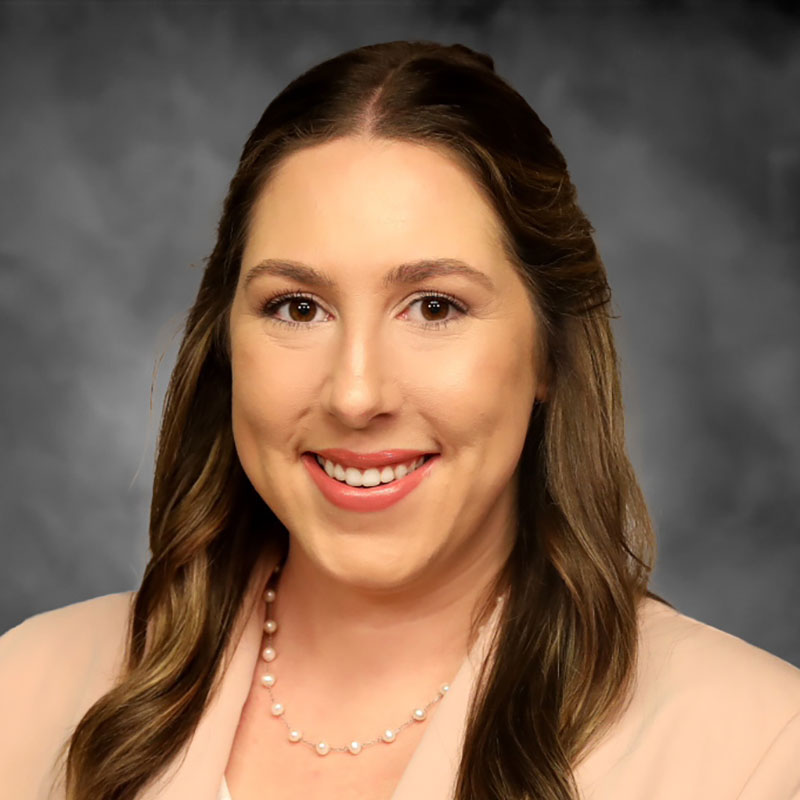FY 2022 Request For Proposals:
Inclusive Research in Health and Wellness in Adults or Children with Disabilities
The Center for Engagement in Disability Health and Rehabilitation Sciences (CEDHARS) is pleased to announce the recipients of its fall 2022 pilot grant funding opportunity, “Inclusive Research in Health and Wellness in Adults or Children with Disabilities.” (![]() Request for proposal is available for reference.)
Request for proposal is available for reference.)
CEDHARS’ overarching mission is to advance scientific discovery, translational research, education and engagement in the fields of disability health and rehabilitation sciences. This pilot program aims to support the advancement of disability health research, and this specific funding cycle intended on increasing the field of inclusion sciences, adapting traditional research to be inclusive of people with disabilities. Applications were highly competitive and were peer reviewed using the NIH scoring framework. Four proposals were chosen for $50,000 of funding. To learn more and read the abstracts for each of the projects, click on the links below:
- Dr. Christine Ferguson: “Development of an Inclusive Adaptive treatment Strategy for Weight Loss in People with Physical Disabilities and Prediabetes Using a Sequential Multiple Assignment Randomized Trial”
- Dr. Jie Gao and Dr. Laurie Ann Malone: “Comparison of Two Park-Based Activities to Improve Emotional Well-Being and Reduce Stress of Adults with Mobility Impairments”
- Dr. Yumi Kim: “Effects of Dietary Protein Intake and Resistance Training on Retention of Fat Free Mass During Weight Loss in Adults with Obesity: A Cohort of People with Mobility Limitations”
- Dr. Caroline Richter: “Evaluating biopsychosocial outcomes of mindfulness-based instruction in school-aged children with specific learning disabilities”
 Christine Ferguson
Christine Ferguson
Development of an Inclusive Adaptive Treatment Strategy for Weight Loss in People with Physical Disabilities and Prediabetes Using a Sequential Multiple Assignment Randomized Trial
- Principal Investigator: Dr. Christine Ferguson, RD, LD, Postdoctoral Scholar in SHP Research Collaborative, NCHPAD
- Collaborating Scientist: Dr. Drew Sayer, Assistant Professor, Heersink School of Medicine Department of Family and Community Medicine
There is strong evidence to suggest that people with physical disabilities are at high risk of obesity and other secondary health conditions, such as diabetes. In the context of obesity, available treatment interventions are ineffective and provide substantial variability in weight loss. Therefore, a personalized and adaptive intervention strategy is needed to address this complex public health issue. The first aim to adapt a Sequential Multiple Assignment Randomized Trial (SMART; NCT04745572) to promote weight loss and insulin resistance in adults with physical disabilities, obesity, and prediabetes. The second aim is to evaluate the methods used in the implementation of the adapted protocol.
Thirty adults with a physical disability, overweight/obese BMI, and prediabetes will be recruited to participate in an inclusive 16-week weight loss SMART and participate in a weekly weight management program based on the Diabetes Prevention Program via Zoom. Participants will be first randomized to be counseled to follow either a RC or HC diet. Participants with greater than 2.5% weight loss at week four will be identified as non-responders, and they will be randomized to receive a second stage SMART intervention of adding either exercise or time-restricted eating (TRE) to their original diet plan. The third aim is to obtain preliminary estimates of treatment effects and their variances on changes in anthropometric measures (body weight, body composition, and waist circumference) and metabolic outcomes (glucose, insulin, hemoglobin A1c, lipid panel, and blood pressure).
 Jie Gao
Jie Gao
Comparison of Two Park-Based Activities to Improve Emotional Well-Being and Reduce Stress of Adults with Mobility Impairments
- Co-Principal Investigators:
- Dr. Jie Gao, Assistant Professor, School of Health Professions Department of Clinical and Diagnostic Sciences;
- Dr. Laurie Ann Malone, MPH, Researcher IV, SHP Research Collaborative
- Collaborating Scientist: Dr. Hon Yuen, Assistant Professor and Director of Research, School of Health Professions Department of Occupational Therapy
Urban parks promote various forms of recreational activity and are recognized as an effective means to promote both physical and mental health. People with impaired mobility, however, are severely underrepresented in available studies on urban parks, Given the high incidence of secondary conditions (e.g., depression, anxiety, obesity) experienced by adults with disabilities, this study aims to use green space activities to promote better health. This proposal will examine the impact of a 10-week crossover urban park intervention on the emotional well-being of people with mobility impairments, and compare outcomes between five weeks of sensory engagement activity (i.e., enjoy sights, sounds; primarily sedentary) and five weeks of physical activity (i.e., wheeling/walking on trail) while in the park.
 Laurie Ann Malone This project addresses the disparities in mental health and emotional well-being experienced by individuals with mobility impairments. Findings from this project will serve as a first step to better understanding the impact of nature-based urban park interventions and will provide guidance for development of alternative preventive and therapeutic strategies to promote emotional health for people with mobility impairments. Greater insight into the mental health benefits of green space exposure among people with mobility impairments is needed to encourage community and workplace development of local and neighborhood green spaces with easy access by all.
Laurie Ann Malone This project addresses the disparities in mental health and emotional well-being experienced by individuals with mobility impairments. Findings from this project will serve as a first step to better understanding the impact of nature-based urban park interventions and will provide guidance for development of alternative preventive and therapeutic strategies to promote emotional health for people with mobility impairments. Greater insight into the mental health benefits of green space exposure among people with mobility impairments is needed to encourage community and workplace development of local and neighborhood green spaces with easy access by all.
Effects of Dietary Protein Intake and Resistance Training on Retention of Fat Free Mass During Weight Loss in Adults with Obesity: A Cohort of People with Mobility Limitations
- Principal Investigator: Dr. Yumi Kim, Postdoctoral Researcher, Heersink School of Medicine Department of Physical Medicine and Rehabilitation
- Co-Investigators: Dr. Drew Sayer Assistant Professor, Heersink School of Medicine Department of Family and Community Medicine; Dr. Jereme Wilroy, Assistant Professor, Heersink School of Medicine Department of Physical Medicine and Rehabilitation
 Yumi Kim
Yumi Kim
This study is nested within an ongoing multimodal intervention (high protein [HP] diet and/or resistance exercise training [RT]) aimed at preserving fat free mass (FFM) during weight loss among adults with obesity (≥ 50 years old), using a sequential multiple assignment randomized trial (SMART) design [NCT04014296]. The study protocol of the main trial was adapted for a cohort of people with mobility limitations to:
- examine the feasibility of a 16-week RT and HP diet program (separate and combined) for FFM retention during weight loss; and
- obtain preliminary estimates of the first and second stages of intervention efficacy and their variances.
In this study, 15 adults with self-reported mobility limitations (based on the perceived difficulty of walking/climbing stairs and use of assistive devices) will participate in an eight-week self-directed RT intervention (first stage). The response criteria at week eight are a greater than 5.5% reduction in fat mass (FM) and less than 1.5% reduction in FFM. Participants meeting FM and FFM mass criteria will be identified as “responders” and continue with self-directed RT for the remainder of the study. Participants not meeting both criteria will be identified as “non-responders” and randomly assigned to either an intensified program with supervised RT or a combined program with HP supplements and supervised RT for the remaining eight weeks intervention (second stage). All participants will receive a weekly, group-based, remotely delivered weight loss counseling session (State of Slim [SOS]) during the 16-week intervention, in addition to the RT and/or HP diet prescription. Outcomes include four domains of feasibility metrics (i.e., process, resources, management, and scientific outcomes). The scientific outcomes include body weight and composition (FFM, fat mass) using dual energy X-ray absorptiometry (DXA) and participant feedback via semi-structured interviews.
The long-term goal of this research is to inform the inclusion of cohorts of disability in multimodal interventions addressing diet and exercise. The feasibility component will explore general problem areas in the recruitment, enrollment, and engagement of the program among adults with mobility limitations and identify characteristics of those who have the greatest response to the program. Most importantly, this trial will allow for increased detail on all feasibility metrics to provide valuable information for the design and implementation of larger trials.
 Caroline Richter
Caroline Richter
Evaluating biopsychosocial outcomes of mindfulness-based instruction in school-aged children with specific learning disabilities
- Principal Investigator: Dr. Caroline Richter, Assistant Professor, Colleges of Arts and Sciences Department of Psychology
- Co-Investigators: Dr. Heather Austin, Associate Professor, Heersink School of Medicine Department of Pediatrics; Melanie Albright, MA, Graduate Student, College of Arts and Sciences Department of Psychology; Dr. Sylvie Mrug, University Professor, College of Arts and Sciences Department of Psychology; Dr. Robin Lanzi, MPH, Professor, Department of Health Behavior School of Public Health
Given the growing youth mental health crisis that has worsened with the COVID-19 pandemic, there is a need to focus on promotion of protective factors that can support better outcomes in youth with specific learning disabilities (SLD). SLDs are very common and are associated with higher anxiety and depression and less positive learning mindsets than their typically developing peers. In a systematic review, it was demonstrated that individuals with SLD experience stigma related to having a disability, which is significantly related to having lower self-esteem and other less optimal psychological adjustment, including higher rates of anxiety and depression and lower self-efficacy.
The MindUP curriculum is an evidence-based program based on social and emotional learning (SEL), that provides clear instruction in both SEL and Mindfulness-Based Instruction (MBI). MBI’s have the potential to enhance SEL programs by offering a practical way to cultivate social-emotional skills. The MindUP has been empirically supported for typically developing children leading to better stress regulation, improved academic performance, enhanced tools and strategies for self-regulation, and increased optimism and happiness. This study aims to expand and adapt this program to be implemented among school-aged children with SLDs, having the potential to inform future mindfulness-based interventions targeting individuals with disabilities more broadly. Finally, we will incorporate three different biomarkers to assess physiological changes as a result of the intervention and better understand the mechanisms of change involved in this intervention.